Reminder: all of our rugs are professionally washed.
You will receive an invoice serving as a certificate upon request.
We have a collection of approximately 600 rugs, each with its own origins, history, colors... and we answer your questions about each piece.
We are here to meet your requirements!
Antique Tabriz, حاجي جليلي "Hadji Jalili", Persia, Iran, in wool and silk, hand-knotted for approximately 480,000 knots per m2.
From the end of the 19th century, this exceptional piece is made of a firm and resistant velvet and designs of great rigor.
An overlock is sewn around the entire perimeter of the outer border.
The "Hadji Jalili" take the name of the great Persian knotter, who created these works of art between 1880 and 1910.
(The term "Hadji" applies to the Muslim who made a pilgrimage to Mecca) the "Hadji Jalili" are emblematic Tabriz always knotted with the finest wools or silks.
Our model has unusual shades, chocolate, milk chocolate, gray, wolf and ivory.
A large, skillfully cut mandorla sown with fine little wolf bouquets on a cream, ivory background is placed in the center of the field. It releases these bouquets of stylized flowers placed in a peacock's tail, representing the tree of life, surrounded by abundantly flowered branches matching the wolf and ivory dyes.
# A vase or vases in the center of the carpet represent the ancient attribute of the Sumerian goddess of water in the third millennium.
A vase from which water springs, the motif has remained until today, in oriental art, but it has lost its original meaning.
A group of Persian antique carpets of the most extraordinary is that of the carpets called "with the vase".
The vase is a pretext for an overflow, a floral gushing, in arabesques with volutes.
The vase associated with the tree of life, is found on Persian types: Tabriz, Kashan, Macchad.
But also on Turkish interpretations, in Ottoman carpets and marvelous silks of Kashmir.
Over the centuries, the decor has moved away from the original decor.
The field with flowers on a discreet Herati decoration in the background.
The decoration of the field is mainly composed of stylized flowers accompanied by small pendants in the shape of a halberd.
The medallion cut with four points is surrounded by an ivory-colored border accentuating the contrast between the field which supports it.
A rare carpet by its colors and its decoration.
Four small stepped spandrels delimit the angles.
The wide border with garlands of flowers is composed of six braids.
The border, richly flowered, testifies, like the whole of this piece, to the mastery of the craftsman who knotted it.
This piece contains many elements of ancient decoration which are almost no longer found today.
Sublime artifact of the Persian culture of the 19th century knotted under the Qajar dynasty.
## The Qajar dynasty or the Qajars :( Qājār, Qajar, Qajar, Persian: Tabriz (Azerbaijani: Təbriz/ تبریز, formerly Tauris), is the capital of the province of East Azerbaijan, in the northwest of Iran (Iranian Azerbaijan).
It is located on the course of the Talkheh River (also called Aji-Chāi), near Lake Urmia. Tabriz is close to the borders of the Republic of Azerbaijan and Armenia.)
It is the gateway to Persia from the north to the west, the Tabriz have an extreme importance in the quality of Persian carpets. They are among the most prized carpets in the world, their work is always very fine and durable over time.
This carpet has been professionally and ecologically cleaned.
For more information you can contact me at 06 13 36 09 30 or on winsteinprovence@gmail.com
Dimensions: Width 122 cm (48") x Length: 182 cm (72")
FREE SHIPPING FOR FRANCE as for all our rugs, small and large!
!FRANCE 0€ / EUROPE 25 € / WORLD 50 €
www.winsteinprovence.com
Come visit us
(texts, photos, Winstein, rights reserved)










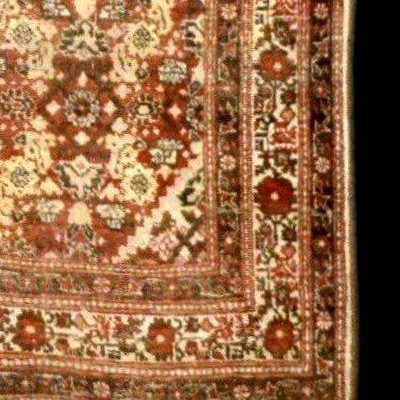
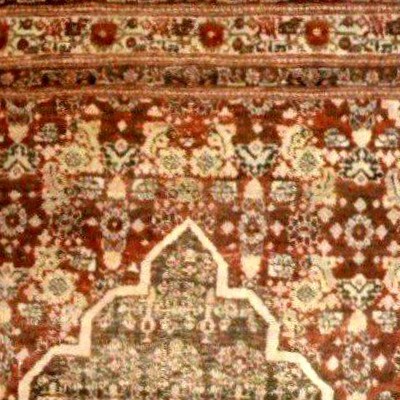

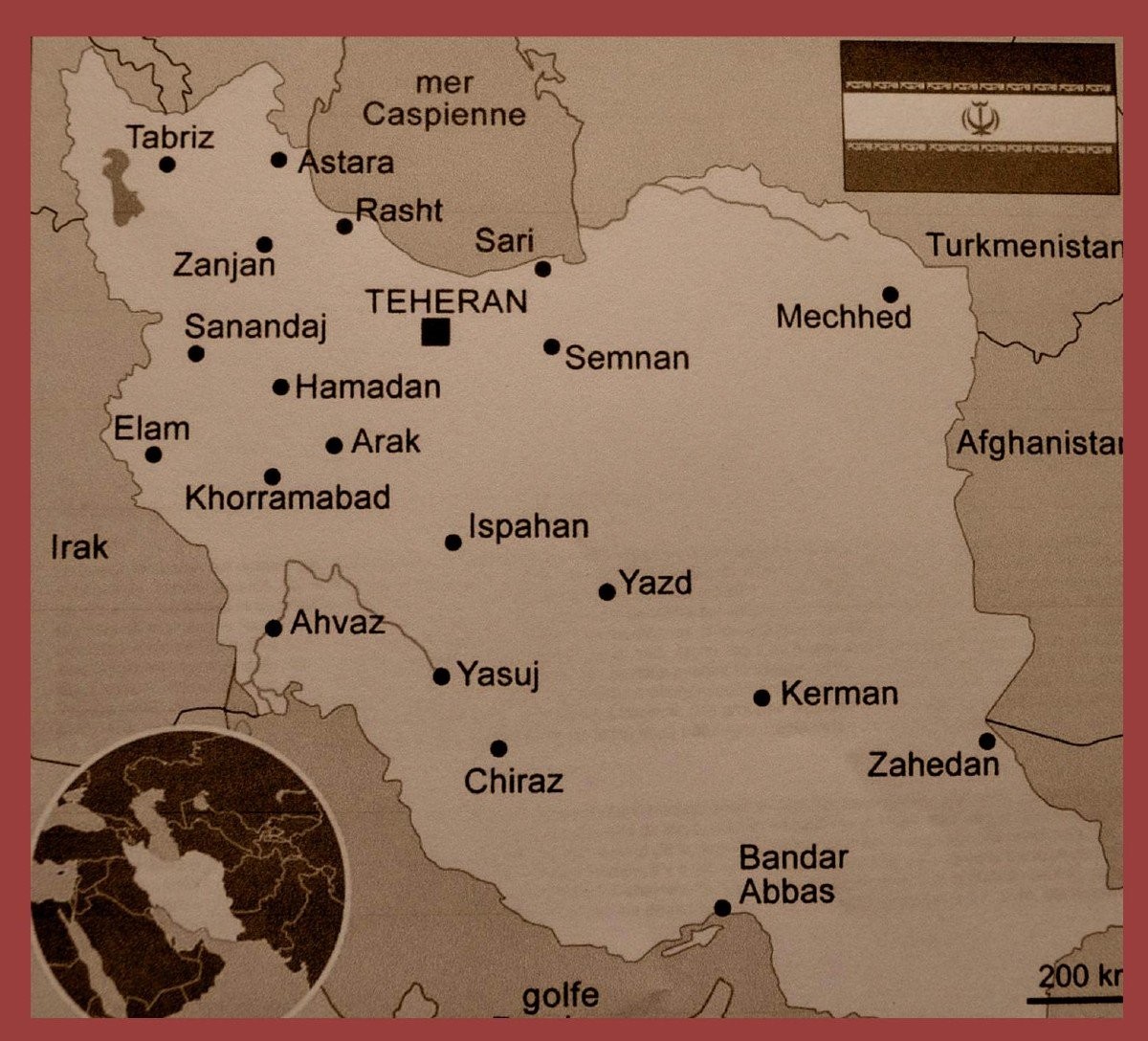

















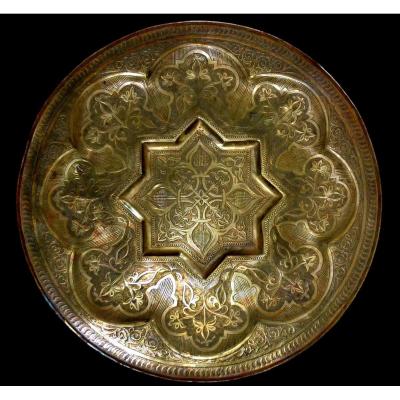
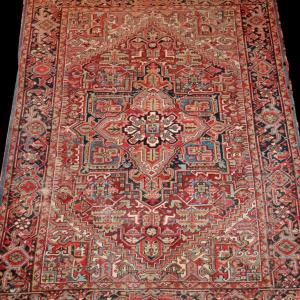

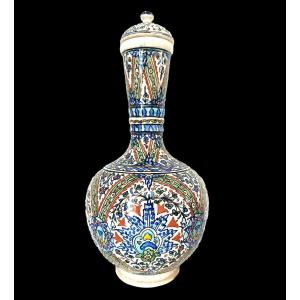


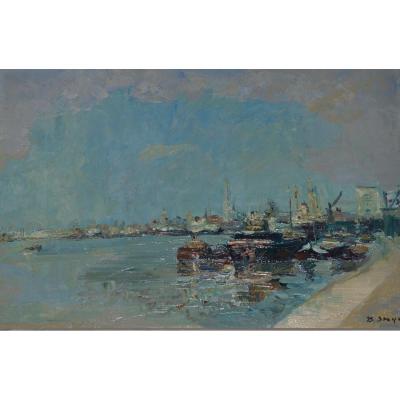
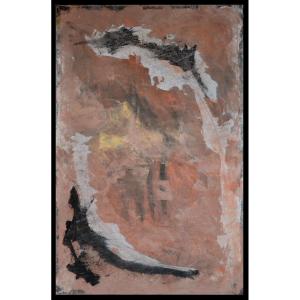
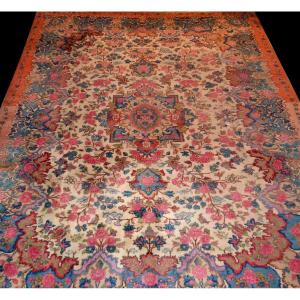
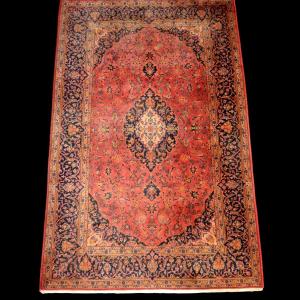
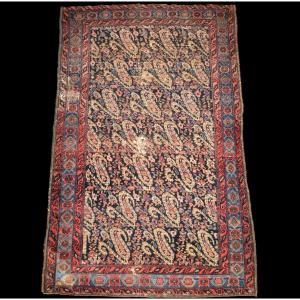
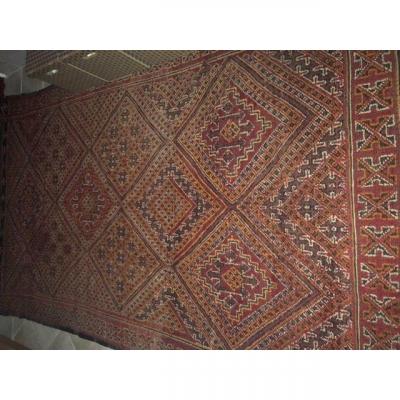



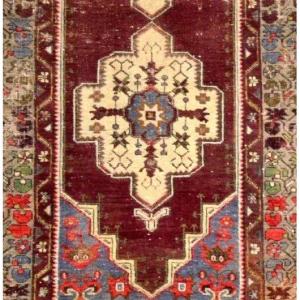



 Le Magazine de PROANTIC
Le Magazine de PROANTIC TRÉSORS Magazine
TRÉSORS Magazine Rivista Artiquariato
Rivista Artiquariato